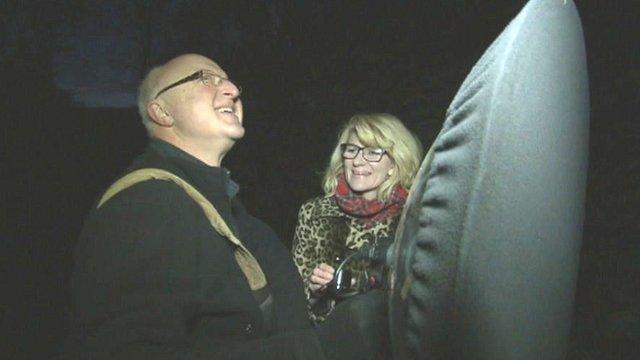Jo Milne: Ear implant woman helps Bangladesh kids
- Published
The moment deaf woman Joanne Milne hears for first time
Two years ago Jo Milne became an internet sensation when footage of her hearing for the first time appeared on YouTube. Since then she has rekindled a long-lost friendship, enlisted the support of 1970s pop group The Osmonds and travelled to Bangladesh to help hundreds of deaf children.
More than 10m people shared the moment when Jo Milne, who was born deaf, heard for the first time at the age of 39. She had been fitted with cochlear implants and the footage of her tears of joy on hearing a nurse read to her went viral.
Amid the flood of well-wishers was a long-lost friend - Amina Khan.
Jo had known her since she was 11 but, when Amina married at 16 and moved away to Bangladesh, the pair lost touch.
They had formed a close bond because they were both "different", Amina said. Her family was the only Asian one on their Gateshead estate and Jo was deaf.
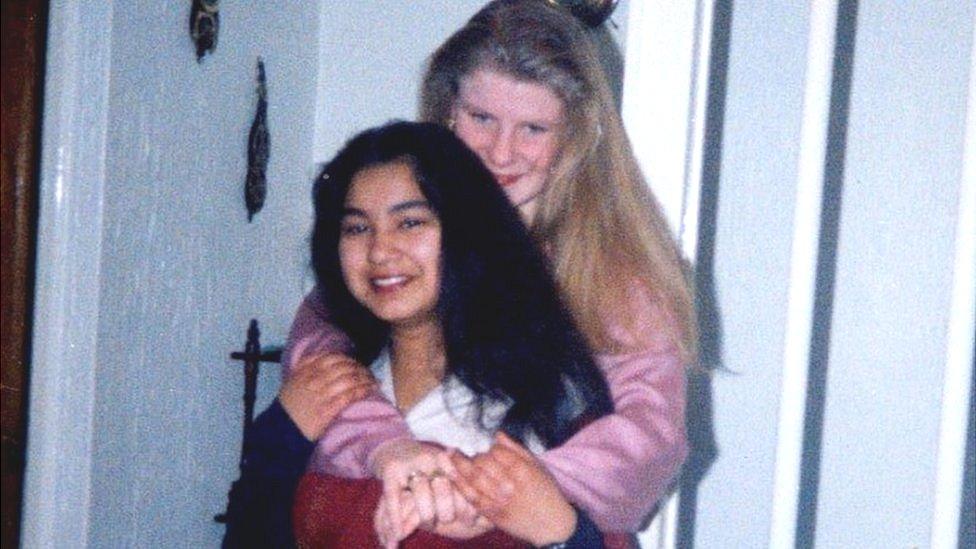
Jo, now 41, had known Amina since she was 11, but when Amina married at 16 and moved away, the pair lost touch.
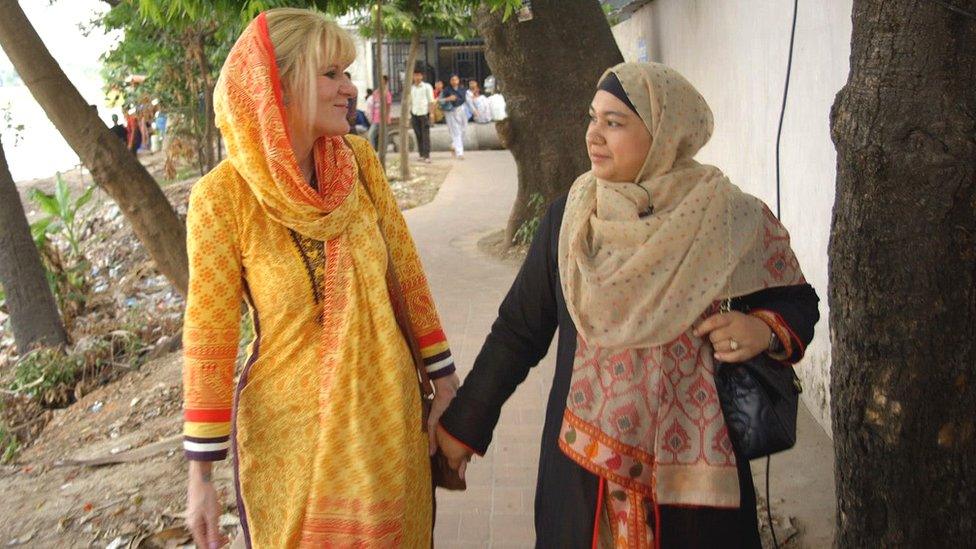
Amina says she hates it when Jo is described as "the deaf and blind girl". She says: "She is still the same to me"
"It was a special bond because we were different and there was a little bit of bullying going on," she said. "It was always a warm and friendly place, but there were some spiteful kids.
"But we were so close we didn't even realise. We were in our own little world."
They had plans for their future, too.
"As we were growing up we always used to say to each other that one day we would try to help the poor children of Bangladesh," said Amina.
Support for the pair's plans came from an unlikely source - The Osmonds, six brothers from Utah who formed a band with the intention of making money for their deaf elder brothers.
Members of the band had seen Jo's video and were so moved they got in touch to ask her to be an ambassador for their charity, the Hearing Fund UK.
Two years later she turned to them for the contacts she needed to transform a vague childhood promise into reality.
Jo said 5% of children in Bangladesh - 1.2m - are deaf. The plan was to fit 500 of them with hearing aids in the space of two days.
Simply boosting sound, aids are a more basic solution than the cochlear implants Jo had fitted - electronic devices that replace the function of the damaged inner ear, sending sound signals to the brain.
Jo travelled to Dhaka, the capital of Bangladesh where Amina lives, to film the life-changing clinics.
The "hustle and bustle" of one of the most congested cities in the world was a shock to Jo's newly revived sense of hearing.
"I was looking this way and that - I've never known so much traffic, so many people," she said.
As the day of the first clinic dawned, the queue outside grew longer and longer.
Woman born deaf aids deaf Bangladeshi children
Despite being highly planned with lots of volunteers, the sheer number of people needing help meant families waiting for hours in the intense Dhaka heat.
For hearing aids to be fitted, the ears need to be perfectly clean so many of the youngsters had to have theirs cleaned before moulds were made. Once the aid was fitted the volume was gradually turned up to reach the right level.
"Watching their eyes light up, they are all reacting differently to hearing sound," Jo said.
"Some having a quiet reaction others crying. Watching them turning from left to right reacting to sound is amazing."
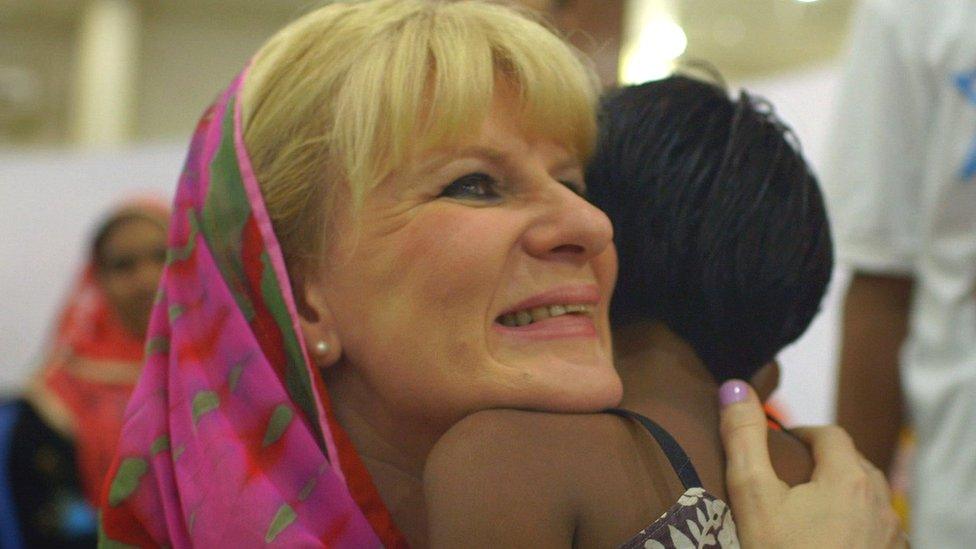
"This has been a humbling experience, but its not over - there are so many more children that I want to reach," says Jo
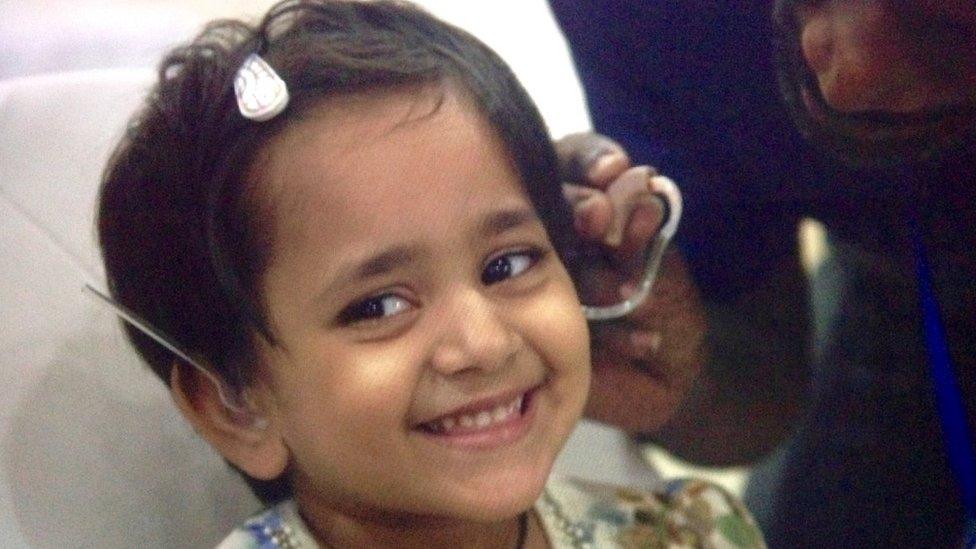
Hearing aids do not work for all people born deaf, but most, the Starkey Hearing Foundation says
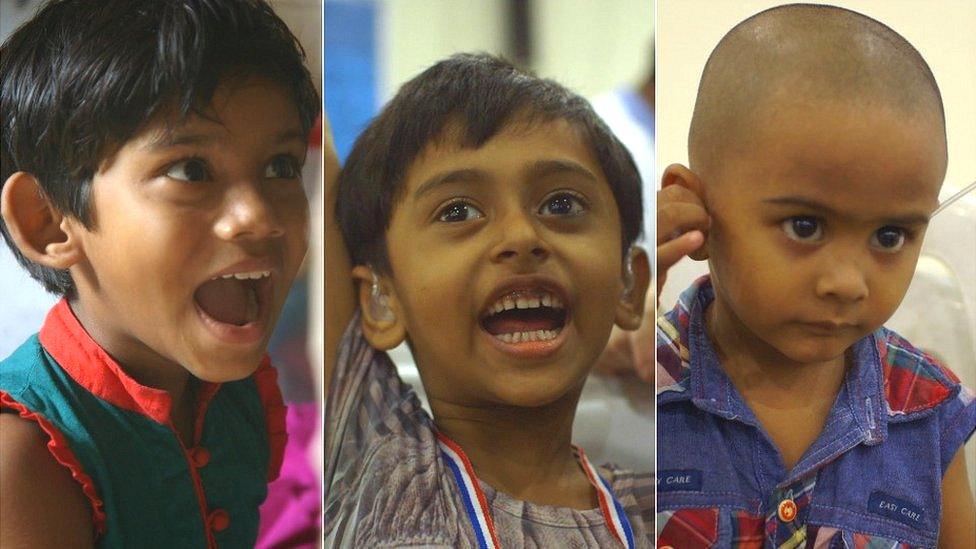
Jo said: "Watching their eyes light up, they are all reacting differently to hearing sound"
The hearing aids worked for most, but not all, of the children.
Rokaya Begum, whose two sons and daughter had them fitted, said: "My children can hear me and have conversations - it doesn't get much better."
Sixteen-year-old Morium said she could hear the pigeons. "They sound good," she said.
Her mother said it would mean she could get an education and job and be able to look after her parents.
To eventually see their dream of helping children in her home country come true had been "a very emotional journey" for them both, Amina said.
"I couldn't have done it alone," Jo said. "There were so many children involved."
The hearing aids "had broken down all those isolating barriers," she said.
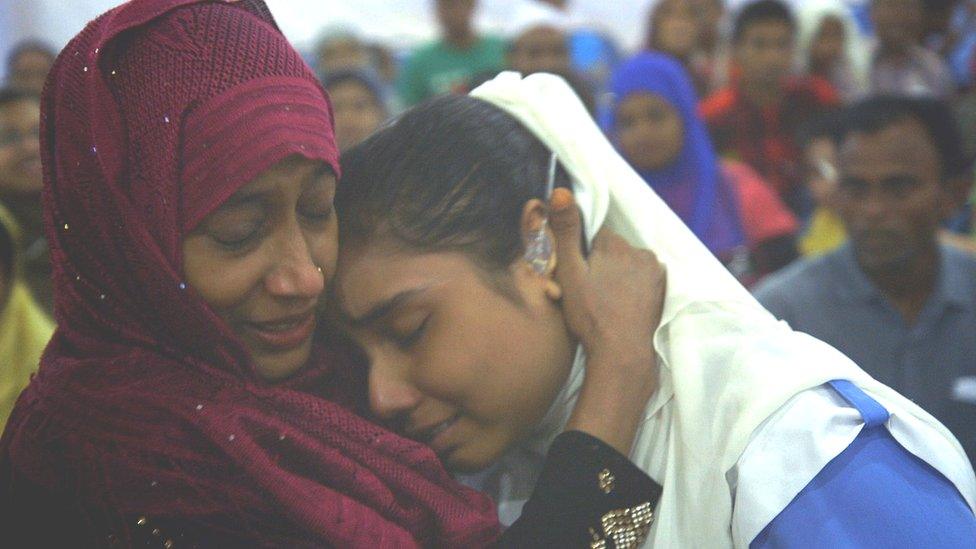
Some hearing aid recipients were overcome with emotion hearing sound for the first time
For Jo, the chance to see the children's reactions is priceless. Despite regaining her hearing, her disorder - Usher syndrome - means she is now losing her sight.
She compares her diminishing vision to looking at the world "through a letterbox".
"It was a thought provoking visit - being deaf is a very isolating condition anyway," she added. "The stigma surrounding deafness is a world-wide issue.
"But there are thousands and thousands of children like Morium.
"At the end of the day it is a hearing world and hearing aids have enabled me to be a part of it.
"This has been a humbling experience, but it's not over - there are so many more children that I want to reach."
The Gift of Hearing will be shown at 19:30 GMT on 29 July on BBC One in the North East and Cumbria, and at 23:05 BST on 4 August on BBC Two nationwide.
- Published28 September 2015
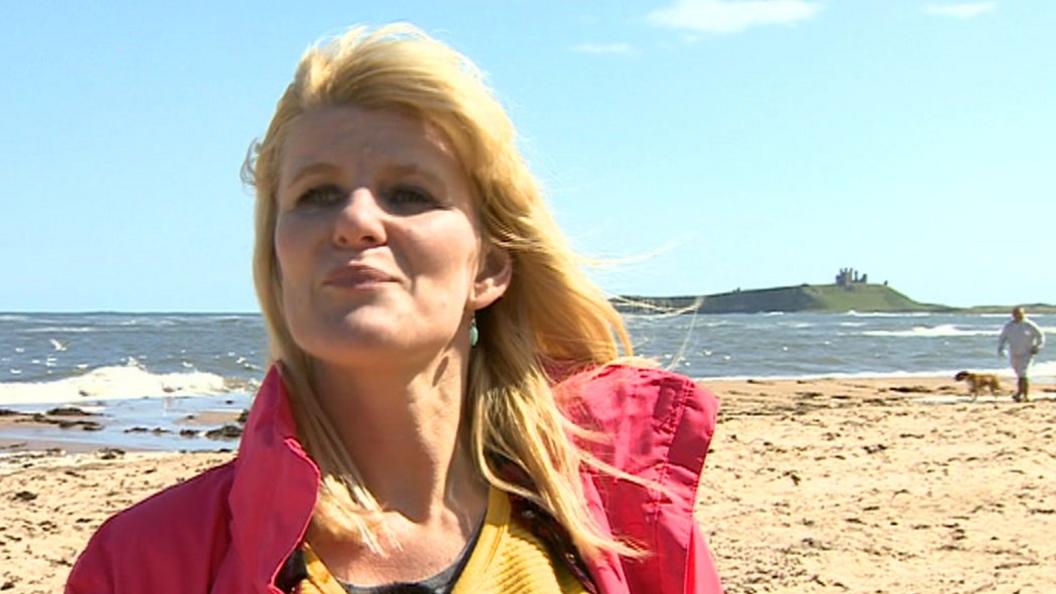
- Published28 March 2014
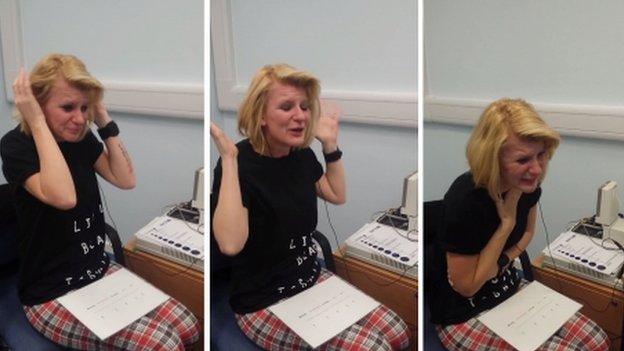
- Published28 August 2014
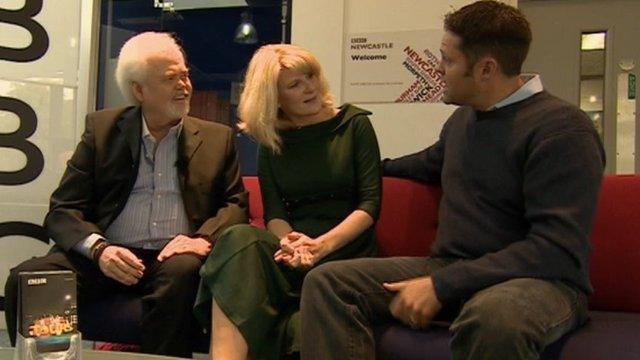
- Published15 April 2014
